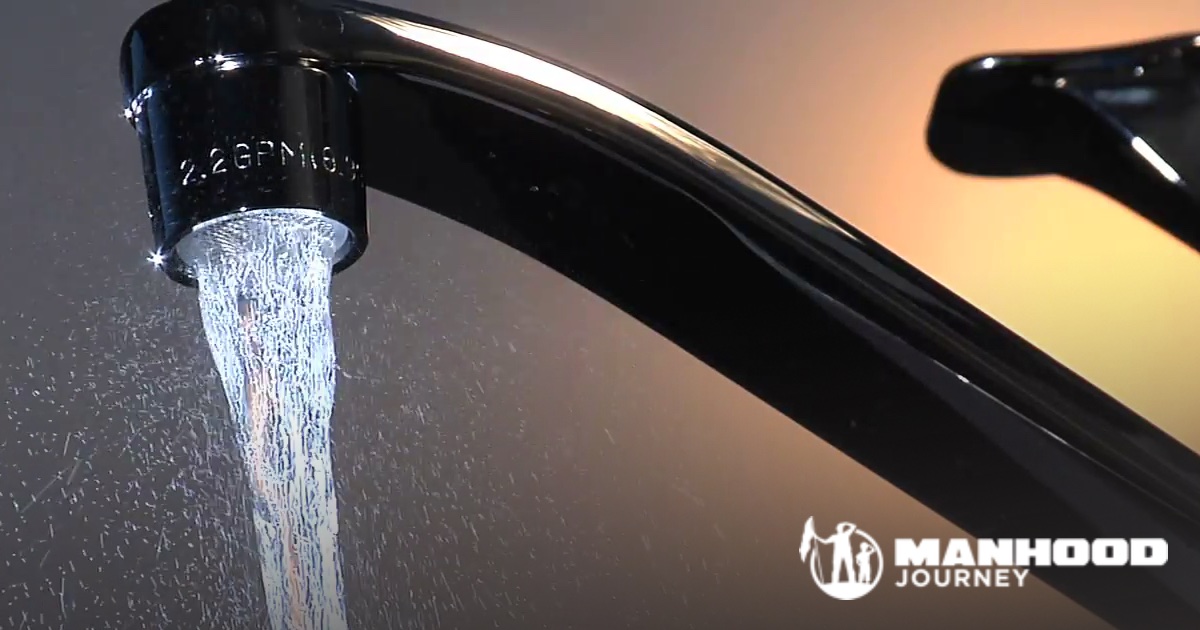This is the third post in a four-part series, Seeds Planted: Helpful Metaphors for Fathers. We’re looking at four metaphors we can use to convey ideas to our children that are well received and easily recalled. This one we call, “Cup & Faucet”, which will help you dads out there to explain the concept of blessing to your kids.
I’ll admit, this metaphor is a tricky one.
It has some potholes you must steer around to use it effectively. However, I think the risk is worth the reward. It can give you a powerful visual to help explain blessing to your kids while avoiding an “entitlement” mentality with God. As a bonus, it can also help you unpack God’s power in a refreshing way.
Where’s the Blessing?
Sometimes our children may ask why they’re not being blessed in certain areas:
- Why didn’t I get a better grade?
- Why’d my coach put me on the bench?
- Why did my friend pretend to not even know me at the party?
This often happens when they’re doing the right thing, but don’t see a reward. They studied hard, but the test was unfairly difficult. They attended all the practices, but still didn’t see playing time. Their friendliness was rewarded with betrayal.
Sometimes, God doesn’t seem “fair”, and they wonder why. They can end up despairing, “Do my efforts even matter? If I’m going to do my best, and still not get the blessing, why even try?”
It’s an understandable problem. After all, we serve a God who is loving, so why doesn’t he always give us a reward for every right thing we do? Whoo-boy, that’s a pile of issues to sort through. Don’t you agree?
Cup & Faucet: What to say to explain God’s blessing to your kids
In an effort to address one piece of this puzzle, I pull out the “cup & faucet” metaphor. I snag a drinking glass, head over to the kitchen sink, and say something like this:
“Son, God loves you. He has good plans for you (Jer 29:11) and we know all things work together for our good (Rom 8:28). His blessings are like water flowing from a faucet. He decides when to turn the faucet on, how fast the water flows, and how long it continues. Our job is to hold the cup below the faucet and be ready to ‘catch’ them as they rain down. We hold the cup even when the water’s not flowing. He gives, we receive.”
Here’s what I’m trying to reinforce:
- God is the giver of all good things – any blessing we have comes from Him
- Sometimes, blessings are there, but we miss them – we’re looking away and they drip right past us (accidental drift)
- Sometimes, He doesn’t bless us because we’re living outside His will (willful disobedience)
Open Further Dialogue
All metaphors break down. This one must be clarified in five ways, but as you elaborate, cool new topics come up:
- Does this relate to our salvation? No, it doesn’t! We can’t hold the cup perfectly enough to be saved. We’re saved through faith in Jesus Christ, not through good works. (Ephesians 2:8)
- If I hold the cup in a certain spot, does that “cause” God to bless me? No. But, there’s more to it. Just because I’m a responsible worker doesn’t mean I won’t get laid off. Obedience doesn’t guarantee blessings (Read the book of Job). However, if I’m headed down a destructive path, he might aggressively get my attention (See Paul’s Damascus Road experience, Acts 9). Sometimes, fighting God can result in the removal of blessings.
- Can God bless us even if we’re not “in position” to receive? Sure! While we were yet sinners, Christ died for us. (Romans 5:8)
- Are there times of no flow at all? Yep. That’s God’s call. (Matthew 5:44-45)
- Can I “hold the cup” in the right spot through my own effort? Nope. That’s why He gave us the Holy Spirit to guide and help us. (Romans 8:26)
I realize this wades into dicey areas of man’s will versus God’s sovereignty. Men smarter than me have discussed this subject (here’s one featuring Dr. Albert Mohler and Dr. Paige Patterson), and I won’t pretend to add a ton o’ value to that conversation.
But, in the end, I think this metaphor can help get your kids talking about powerful concepts like blessings, obedience, and grace.
So may your cup runneth over Mr. Intentional Father!
Wanna read the other posts in this series? Here you go:
Post #1: Seeds Planted: Helpful Metaphors for Fathers Blog Series #1: Relational Stew
Post #2: Seeds Planted: Helpful Metaphors for Fathers Blog Series #2: Edge of the Ledge
{{cta(‘9216ad6f-5538-41f3-a6ee-88855c0ee5fb’,’justifycenter’)}}












